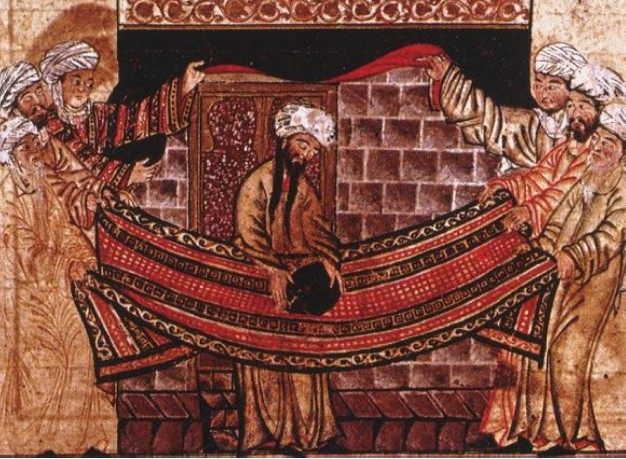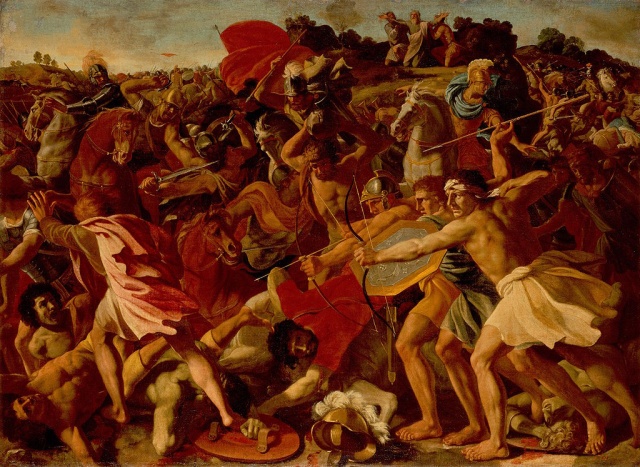Question
Dear Gramps,
What would be the Latter-day Saint explanation for the Muslim holy book Quran, and the visions that their prophet Muhammad claimed to have had?
Robert
Answer
Dear Robert,
Officially, there is no Church position on Muhammad or his teachings or purported revelations. Our scriptures acknowledge that “the Lord doth grant unto all nations, of their own nation and tongue, to teach his word, yea, in wisdom, all that he seeth fit that they should have” (Alma 29:8) and so they would need their own messengers.
When we read the Quran, we find some interesting patterns that may sound familiar to the latter-day saint. Rather than a chronological narrative (much like you would find in the Gospels, Genesis, Kings, and the Book of Mormon), or even a topical exposition (like you would find in General Conference or Ensign articles), the book is arranged by discreet revelations (much like you would find in Isaiah, Jeremiah, the Doctrine and Covenants, or even the Epistles). For instance, if you were to search for a single Sura (the individual revelations of the Quran – much like our sections in the D&C) that explains the fall of Satan you would fail. What you would find instead are several Suras that each mention the event and then move on to the principle being taught (typically opposition in this world). This is not unlike our own scriptures where you find the fall of Satan outlined in Isaiah, Revelation, and a few sections in the D&C, but no one particular chapter or section is the definitive telling.
Muhammad also revealed accounts of previously unknown peoples who were taught by God’s messengers. These include stories of Luqman, Hud, and Salih, among others. Additionally, he expanded on the stories of various biblical characters, such as Mary and Jesus, Solomon and the Queen of Sheba, Moses and Pharaoh, and others. This should seem familiar, not just to Latter-day Saints who have the Book of Mormon, Abraham, Moses, and D&C 7, but also to scholars who are familiar with the New Testament-era popularity of the Book of Enoch – despite it’s first century BC origins.
As noted earlier, the message of the Quran fits nicely with the culture in which it was given. It is intended to lift the reader closer to God without completely alienating her. For instance, it has a heavy-handed theme on heaven and hell (similar to the doctrine of the Two Ways found throughout the Old Testament, popular in apocryphal New Testament writings, and seen as a theme in our scriptures any time the Adam and the Fall are mentioned), the descriptions of which fit nicely with a Middle Eastern culture. For Muhammad, heaven is described as a garden of gardens flowing sumptuously. For Western Christianity, we tend to view it in terms of John the Revelator’s golden city with pearly gates. Joseph Smith the city-builder reveals a heaven in terms of a society and social order complete with laws and associations. In each case, the revelations are understood culturally.
I find the Quran fascinating for these reasons, but I cannot simply leave it there. There is an over-arching theme which makes its teachings incompatible with Latter-day Saints and Christians in general. The primary principle taught throughout is that there is but one God. One. Muhammad’s message defies the Trinity and the Godhead. There is no room in his teachings for the One True God and other God-persons or for an entire Council or Presidency of Gods. Not only does this mean that Jesus is not God, but he also took it further to teach that God has no sons. For Christians, this discounts the divinity of Jesus (Muhammad assures us Jesus was a prophet born of a virgin), and for Latter-day Saints this discounts our pre-mortal births.
While I find great virtues in the teachings of the Muslim Prophet, I’m afraid I cannot reconcile all of his teachings with our beliefs. If he was a true prophet (in the LDS sense), then either these false teachings were added later (making the Quran something like the apocrypha mentioned in D&C 91), or they were intended as a stepping-stone to move his people from the polytheism that was so prevalent at the time (in which case, the teachings are now obsolete and in need of an update). If he was not, but sincerely considered these to be true revelations, I cannot very well fault him and must leave him to God’s judgments. Finally, if he was a charlatan of the worst character, I must again leave him to God, but shudder as I do so. At its face, I find Muhammad’s legacy one of non-Christian moral virtue. We should feel no shame in partnering with such while still respectfully acknowledging our differences.
Gramps







